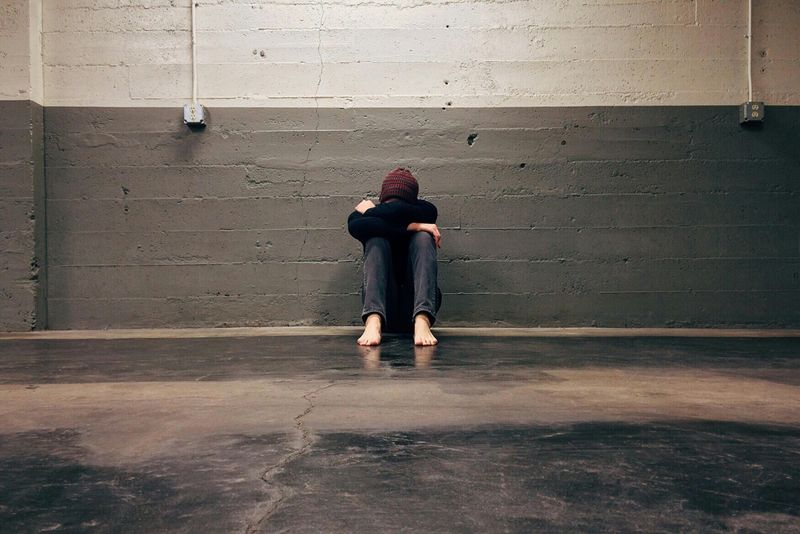11 Signs You Might Be Struggling with Attachment Issues

Attachment issues can shape how we connect with others in ways we don’t always recognize. These emotional patterns form early in life but continue affecting our relationships as adults. Understanding these signs is the first step toward healthier connections with people who matter to us.
1. Fear of abandonment takes over your thoughts

Constantly worrying that loved ones will leave you creates an exhausting mental loop. You might check your phone repeatedly when someone doesn’t respond right away, or feel panic when plans change unexpectedly.
This fear often appears in everyday situations that wouldn’t bother others. A partner working late or a friend canceling plans can trigger deep anxiety about being left behind.
The worry isn’t just occasional – it’s a persistent companion that influences your decisions and reactions in relationships, making it hard to feel secure even with trustworthy people.
2. Pushing people away when they get too close

As things get serious, you might start pulling away without meaning to. Suddenly, their flaws feel magnified—right when they begin to truly care.
This pattern serves as an emotional shield. By rejecting others first, you protect yourself from potential hurt, but also block meaningful connections.
Friends and partners often describe you as hot and cold – intensely connected one moment, distant the next. This push-pull dynamic confuses them and leaves you feeling isolated despite your efforts to control emotional vulnerability.
3. Intense jealousy disrupts your relationships

Green-eyed thoughts creep in even when there’s no real threat to your relationship. You might feel upset seeing your partner talking with others or question their loyalty without evidence.
Social media becomes a minefield where every like or comment from another person feels threatening. This jealousy stems from deep insecurity rather than actual relationship problems.
The emotional rollercoaster exhausts both you and your partner. What starts as wanting closeness transforms into controlling behavior that pushes away the very person you’re afraid of losing.
4. Becoming overly dependent on relationship partners

When one person becomes your entire source of happiness, you start losing your sense of independence. Even simple decisions feel impossible without them, and their absence leaves you feeling unanchored.
Your identity gradually merges with theirs. Hobbies, friendships, and interests take a backseat to spending every possible moment together.
This dependency creates an unbalanced dynamic where your emotional wellbeing hinges entirely on another person. The relationship becomes the center of your universe, making normal separations feel unbearable and threatening your sense of self.
5. Needing constant reassurance about your relationships

Seeking repeated confirmation of others’ feelings becomes an emotional hunger that’s never fully satisfied. You might ask variations of “Do you really care?” or “Are we okay?” multiple times a day.
The temporary relief from hearing reassuring words quickly fades. No matter how many times someone proves their commitment, doubt creeps back in, creating a cycle that strains even the most patient relationships.
This need stems from internal insecurity rather than actual relationship problems. The constant questioning exhausts both you and your loved ones, who feel their loyalty is continuously being tested despite their consistent care.
6. Moving too quickly in new relationships

You dive into emotional depth before building real trust. Within days, you’re spilling your soul or convinced they’re “the one”—long before you truly know who they are.
This fast-forwarding stems from craving connection rather than genuine compatibility. The intensity feels like a powerful bond, but lacks the foundation of time and shared experiences.
The pattern repeats with each new relationship. Early intensity gives way to disappointment when reality doesn’t match your idealized vision, leading to a cycle of passionate beginnings and painful endings that reinforces attachment insecurities.
7. Avoiding conflict at all costs

Every disagreement feels like a crisis, not just a conversation. So you silence your needs, agree to things you don’t mean, and call it compromise—when it’s really fear.
This fear comes from equating conflict with abandonment. Deep down, you worry that expressing negative feelings might cause someone to leave, so you present a perpetually agreeable version of yourself.
The cost of this peace-keeping is authenticity. Important needs go unmet, resentment builds underneath your pleasant exterior, and relationships remain superficial because real intimacy requires honest communication—including during disagreements.
8. Difficulty being alone with your thoughts

Being alone doesn’t feel peaceful—it feels unsettling. So you keep yourself constantly occupied: scrolling, background noise, packed schedules—anything to avoid sitting with your own thoughts.
The discomfort reveals a disconnection from yourself. Without external validation and interaction, anxiety rises about your worth and identity.
This avoidance prevents the self-reflection needed for personal growth. Learning to sit with your own thoughts without reaching for distraction is challenging but essential for developing the internal security that supports healthier attachment to others.
9. Keeping relationships superficial

Meaningful connections remain just out of reach due to subtle walls you maintain. You might have many acquaintances but few people who truly know your vulnerabilities and fears.
Conversations stay in comfortable territory—work, hobbies, or other people’s lives—rather than revealing your authentic self. This distance feels safer than the risk of rejection that comes with being fully known.
The protective strategy works too well. It shields you from potential hurt but also prevents the deep connection humans naturally crave, leaving you with relationships that feel incomplete despite your social calendar being full.
10. Repeating harmful relationship patterns

Different person, same story. You fall for someone new, but somehow the same issues show up again—like you’re stuck on repeat without realizing it.
These patterns feel mysteriously magnetic despite causing pain. Your conscious mind wants healthy connection, but unconscious attachment templates guide your choices toward what feels recognizable rather than what’s good for you.
Breaking free requires recognizing these cycles first. The uncomfortable familiarity of dysfunctional relationships often feels safer than the unknown territory of healthy ones, making change challenging but essential for growth.
11. Emotional shutdown during stressful times

Disconnecting from feelings happens automatically when relationships get tough. You might suddenly feel numb, distant, or unable to express emotions during conflicts when connection matters most.
This protective response developed early in life. When emotions became overwhelming or unsafe to express, shutting down provided safety—a strategy that now activates whenever relationship stress rises.
Partners experience this as confusing withdrawal just when closeness is needed. The very moments that could strengthen bonds become missed opportunities for deeper connection, reinforcing the cycle of insecure attachment that triggers the shutdown in the first place.

Comments
Loading…